World
10 normal things that are banned in North Korea

North Korea, officially known as the Democratic People’s Republic of Korea (DPRK), is a country shrouded in secrecy.
Run by the Kim family for generations, the government maintains strict control over its citizens’ lives. This control extends to many aspects of everyday life, with even seemingly harmless activities being banned or heavily restricted.
Here are ten such examples and the reasons behind these restrictions:
1. Unrestricted access to the internet
Imagine a world without Google, social media, or even online news. In North Korea, access to the global internet is tightly controlled by the government. Citizens have access to a heavily censored internal network, but connecting to the outside world is strictly prohibited. The government fears the spread of information that might challenge its authority.
2. South Korean media

Korea maintains a tense relationship with its southern neighbour, South Korea. As a result, all forms of South Korean media, including movies, music, and TV shows, are banned. The government worries that exposure to South Korean culture could weaken its control and spark ideas of unification.
3. Freedom of movement
North Koreans don’t have the freedom to travel freely within their own country, let alone abroad. Internal movement is restricted, and citizens need permits to travel between cities. Leaving the country is nearly impossible for ordinary citizens. The government fears defection and the spread of information about life outside North Korea.
4. Freedom of religion
While North Korea officially allows for freedom of religion, in reality, it’s heavily restricted. The government promotes a personality cult around the Kim family, and citizens are expected to show absolute loyalty. Religious practices that could compete with this loyalty are discouraged or even banned.
5. Unrestricted cell phones

Mobile phone use is increasing in North Korea, but it’s heavily monitored. Phones typically only allow calls and texts within the country’s internal network. Accessing foreign content or making international calls is strictly prohibited.
6. Certain hairstyles and clothing
North Korea has strict regulations on appearance. Men’s haircuts are limited to a few approved styles, and dyed hair is forbidden. Women’s clothing is expected to be modest and knee-length. These restrictions aim to promote social conformity and discourage individuality.
7. Smiling for pictures sometimes
While North Koreans do smile, there are times when public displays of happiness are discouraged, particularly during periods of mourning or hardship. Images of past leaders are treated with utmost reverence, and sombre expressions are expected during visits to memorials. However, during celebrations and official events, enthusiastic smiles are encouraged.
8. Jeans and other Western clothing

Jeans and other Western clothing styles are often associated with American culture, which the North Korean government demonises. While some Western styles might be tolerated in major cities, wearing them can attract unwanted attention from authorities, especially outside of urban areas.
9. Private businesses
The North Korean economy is centrally controlled by the government. Private businesses are largely banned, and most citizens work for state-owned enterprises. This limits economic opportunities and discourages individual initiative.
10. Criticism of the government
The most serious offence on this list is any criticism of the government or the Kim family. North Koreans are expected to show absolute loyalty to their leaders. Even a whisper of dissent can lead to severe consequences, including imprisonment in labour camps for the offender and their extended family.
Consequences for breaking the rules
Punishments for violating these restrictions can vary depending on the severity of the offence. Minor infractions might result in fines or public humiliation. More serious offences, such as watching South Korean media or attempting to flee the country, can lead to imprisonment in harsh labour camps, or even execution.
Why these restrictions exist
The North Korean government justifies these restrictions as being necessary to maintain national security and social order.
They fear the spread of information that could challenge their authority or lead to calls for reform. However, these restrictions severely limit the freedoms of North Korean citizens and paint a picture of a country where basic human rights are not respected.
World
Canada to cut immigration by 20% in 2025
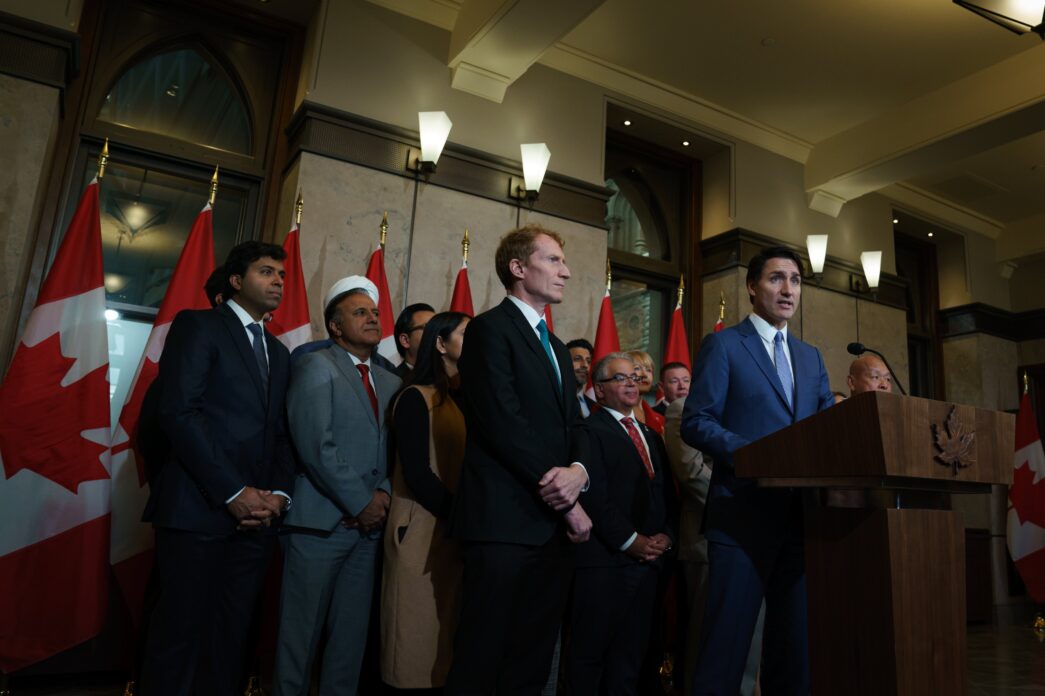
Canada has announced reductions in targets for permanent resident admissions over the next three years as part of plans to cut immigration.
Prime Minister Justin Trudeau has repeatedly affirmed that the move is Canada’s efforts to put its citizens at the forefront of economic opportunities.
The prime minister and Marc Miller, minister of immigration, refugees, and citizenship, on Thursday unveiled the country’s 2025–2027 immigration levels plan in a joint statement.
The layout seeks to reduce permanent residents from 500,000—last year’s target—to 395,000 in 2025.
In 2026, 500,000 permanent residents will be slashed to 380,000, while in 2027, the figures will drop to 365,000.
The plan comes nearly two months after the prime minister said the country would be cutting down on an intake of foreign workers.
“Today’s announcement is the next step in our plan to address the evolving immigration needs of our country. While it’s clear our economy needs newcomers, we see the pressures facing our country, and we must adapt our policies accordingly,” Miller said.
“These changes will make immigration work for our country so that everyone has access to the quality jobs, homes, and supports they need to thrive. We have listened to Canadians, and we will continue to protect the integrity of our system and grow our population responsibly.”
The levels plan will also support efforts to reduce temporary resident volumes to five percent of Canada’s population by the end of 2026.
These reductions are the result of a series of changes over the past year, including a cap on international students and tightened eligibility requirements for temporary foreign workers.
World
UK deports 44 Nigerian, Ghanaian asylum seekers — highest ever in single flight
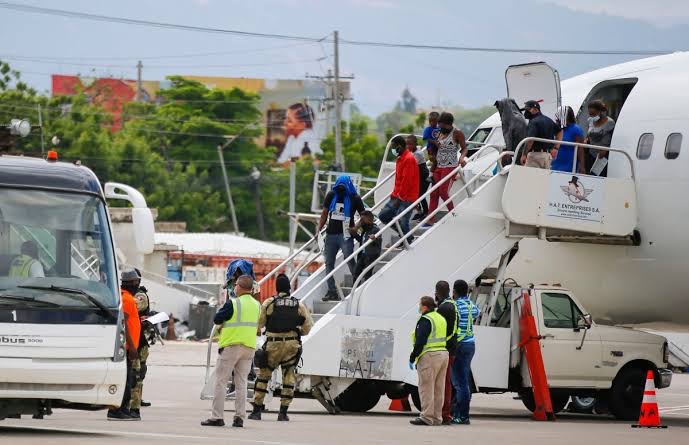
The United Kingdom has deported 44 Nigerian and Ghanaian asylum seekers.
According to UK Guardian, the number is the highest ever in a single flight.
The move comes barely 48 hours after Keir Starmer, UK prime minister, agreed a deal to deport migrants arriving in the Chagos Islands in small boats to St Helena, a British island territory more than 5,000 miles away in the Atlantic Ocean.
The Home Office told the UK Guardian on Friday that the deportations were part of a “major surge” in immigration enforcement and returns.
Since Starmer came to power in July, 3,600 people have been returned to various countries, including about 200 to Brazil and 46 to Vietnam and Timor-Leste.
There are also regular deportation flights to Albania, Lithuania and Romania.
However, deportation flights to Nigeria and Ghana are relatively rare, with just four recorded since 2020.
The number rose in June after some 13 Nigerians were flown to Lagos from the UK.
One of the Nigerian deportees in the latest removal said he was trafficked.
“I told the Home Office I was a victim of trafficking. They rejected my claim,” he told the Guardian.
Another said he had been in the UK for 15 years as an asylum seeker and had no criminal record but the Home Office refused his claim.
In August, Nigeria reportedly signed a deportation agreement with the UK, which would see the arrival of illegal immigrants in the country.
The partnership came into effect after an asylum deal with Rwanda turned sour.
World
Kenyan president nominates interior minister as new deputy
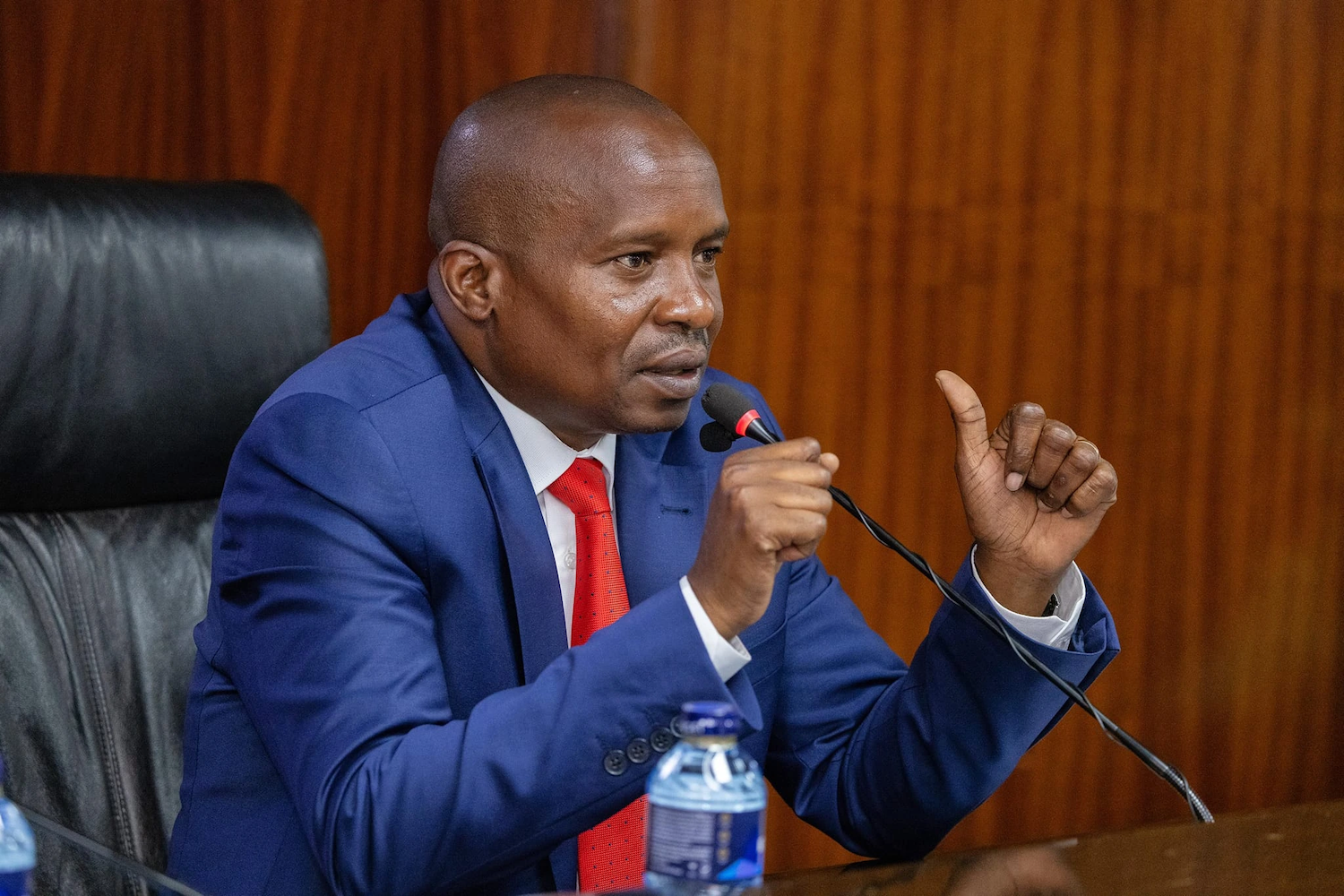
Kenya President William Ruto has nominated Kithure Kindiki, interior minister, as his new deputy.
This comes a day after the senate voted to impeach Deputy President Rigathi Gachagua, despite a plea from Paul Muite, Gachagua’s lawyer, to postpone the proceedings.
According to Muite, Gachagua was hospitalised after falling very sick, hours before the vote was set to hold.
In total, 281 MPs voted in favour of the ouster, with 44 voting against. One MP abstained.
Moses Wetang’ula, speaker of parliament, said on Friday that the president had nominated Kindiki.
“I have received a message from the president, regarding the nomination of Professor Kithure Kindiki to fill the vacancy which has occurred in the office,” he said.
Kindiki, a close ally of Ruto, has held the interior ministry post throughout Ruto’s two years as president.
He previously served as senator for Tharaka Nithi County and was a top contender to be Ruto’s running mate during the 2022 election.
Parliament will have to vote to approve Kindiki’s appointment before he is sworn in.
Gachagua, who faced 11 charges, was impeached on five counts.
The charges include ground one of shareholding, ground four of undermining the independence of judges, ground five of the National Cohesion and Integrity Act 4, ground six of crimes under the National Cohesion Act, and ground nine of gross misconduct (public attacks on the national security intelligence service).
The impeached deputy president has repeatedly insisted that the proceedings were a “political witch hunt” and vowed to defend himself.
-

 Business1 week ago
Business1 week agoKeyamo directs foreign airlines to patronise local caterers for on-board meals
-
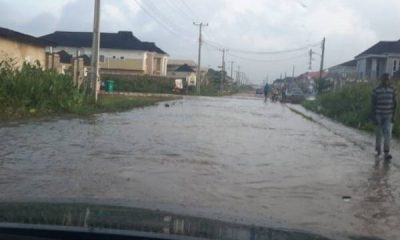
 News1 week ago
News1 week agoLagos state government urges Ogun Riverbank residents to prepare for relocation amid Oyan Dam water release
-

 Celebrities1 week ago
Celebrities1 week agoLola Idije addresses claim Omoborty married her daughter’s boyfriend
-
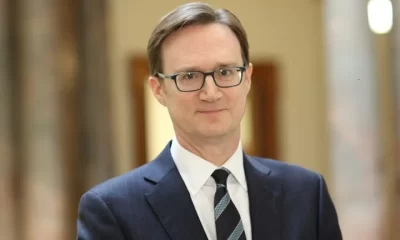
 World1 week ago
World1 week ago‘It’s not a UK matter’ — British envoy speaks on Sunday Igboho’s petition
-
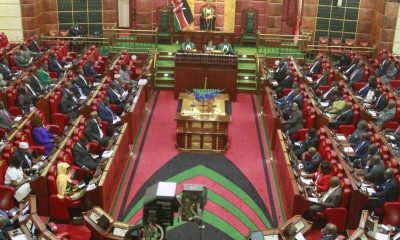
 World1 week ago
World1 week agoKenyan parliament begins vice-president Gachagua’s impeachment trial
-
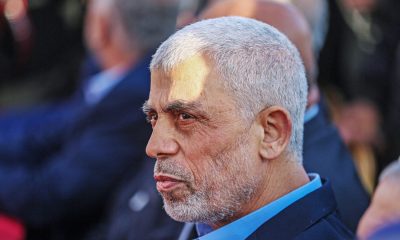
 World1 week ago
World1 week agoHamas leader Yahya Sinwar killed in Gaza military operation, says Israel
-

 World1 week ago
World1 week agoIndian airplane forced to divert after bomb threat
-
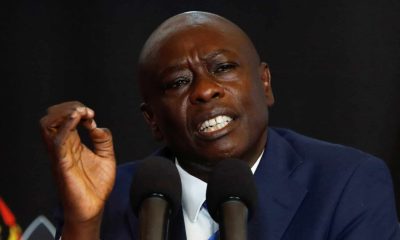
 World1 week ago
World1 week agoKenyan deputy president impeached while hospitalised


















